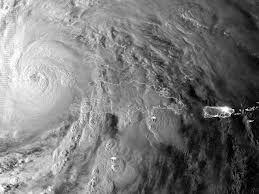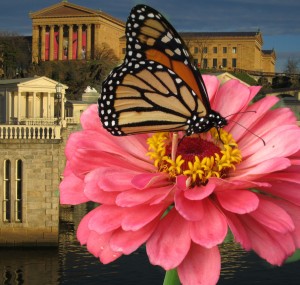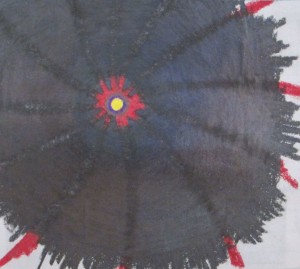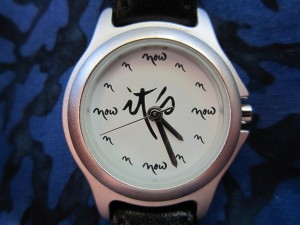
One Sunday I was getting hot under the collar reading an article in the Philadelphia Inquirer about an ongoing budget battle in the Pennsylvania legislature. The article cited one state representative from rural PA who was talking about our mass transit system as a fiscal black hole. He said our buses don’t do a thing for his constituents.
Another representative from one of Philadelphia’s suburbs went on the counterattack, citing a study that shows that the Philadelphia region generates 40 percent of Pennsylvania’s revenue, even though we have only 32 percent of the population—and we receive only 27 percent of the transportation funds.
I looked up from the newspaper and said to Kip, “Philadelphia ought to secede from Pennsylvania!” It was not my most spiritually enlightened moment.
But the frustration was real. Our city’s public schools are on the verge of collapse. Our roads and bridges are deteriorating. We need gun control laws to keep illegal handguns off our streets. And without SEPTA—our mass transit system—the city would be paralyzed by gridlock. Thousands of people who don’t own cars would be stranded, unable to get to work to help generate that 40 percent of Pennsylvania’s revenue.
Yes, our buses do do something for rural constituents.
But at every turn, when Philadelphia tries to move legislation to address our urban problems and improve the quality of life here, we are thwarted by legislators in Harrisburg who see the city as nothing but a cesspool of welfare leeches, drug addicts, and morally corrupt hedonists.
Not surprisingly, most of us who live here see things differently. We see the brokenness and challenges of the city, sure, and sometimes it breaks our hearts. But we also love the vibrant tapestry of cultures and traditions here. We love the spunky innovations, the world-class orchestra, theaters and art museums, historic Independence Hall and the Liberty Bell that people travel from around the world to see. We love the visionary steps our city is taking to make Philadelphia a green, sustainable city. The list could go on and on.
Just think, if we seceded, we could keep that 40 percent of revenue to ourselves, and we’d be golden.
Deep down though, even as I said it, I knew that seceding wasn’t the answer, even if it were legally possible. There’s enough division already in this country, and the way forward isn’t to create more, but to find ways to bridge the chasm that divides us.
Loving Enemies
Yesterday morning, as I was reflecting on this sad state in Pennsylvania I wondered, what is the answer? We seem so locked into this us-them frame of mind. How can we stand down? Soften the lines in the sand? Lay down our swords and shields and find some common ground?
I feel a sense of urgency about this because I know these divisions aren’t just plaguing our region. They are the greatest obstacle to our nation meeting the many formidable challenges before us.
It doesn’t help that our differences have been christened “The Culture Wars.” (Does everything have to be a war for us? War on Poverty, War on Drugs, War on Terror, War on Women?) And yet I don’t think I’m overstating it to say that many people in rural America and many people in urban America see each other as enemies.
Kip and I co-pastored for nearly five years behind “enemy” lines in a small, rural Missouri town, 65 miles south of Kansas City. One of our parishioners laughingly told us a story of when she was a child growing up during WWII. One Sunday the pastor asked one of the church elders to pray for their enemies. The elder got up and prayed, “Dear God, please remove our enemies from the face of the earth.”
I don’t think that’s what the pastor meant, but I bet a lot of us would pray pretty much the same way given the chance. Life would be so much simpler if our enemies just, oh, I don’t know, got raptured up one day.
Living in that small town was a cross-cultural experience, and like all the other cross-cultural experiences I’ve had I’m very glad I had it. I got to see up close, through the eyes of people who had lived there all their lives, the struggles they were facing:
- Farms that had been in families for generations were being foreclosed on because small farmers couldn’t compete with corporate agriculture.
- With the influx of corporate retail stores, family businesses were going under.
- Job opportunities were scarce, and mostly minimum wage.
- Towns throughout the region were decaying because their young people, seeing no future for themselves, were moving away never to return.
People were feeling powerless before cultural and global forces they couldn’t control. They were watching a cherished way of life slowly dying. And yet in the midst of it all they kept the faith, kept taking care of each other, kept holding potlucks, and kept trying to think of ways to protect and resurrect what they once had.
When you know what other people are dealing with, it’s really not hard to pray for them. Love them even.
All of this got me thinking about our current situation here in the commonwealth. (By the way, I love that Pennsylvania is a commonwealth. It just kinda says it all.) What if people in Philadelphia started praying for people in rural PA? Not because we want to guilt-trip them into being nice to us, nor show them that we can take the moral high ground, but because we have listened to their struggles. We sincerely want the best for them, as much as we do for ourselves.
I can’t help but believe such a movement would help repair our relationships and open a path forward in a way politics never will. We are Philadelphia, after all, the City of Brotherly/Sisterly Love, and brotherhood and sisterhood don’t stop at municipal boundaries.
Can you imagine if congregations all over the city started a prayer movement for our rural siblings? Maybe it could be called The Philadelphia Love Experiment. Maybe we could make animosities vanish into thin air.
Somebody has to take the first step—refuse to participate in the warmongering anymore and reach out the hand of friendship. Why not us?
I also think about how Pennsylvania is known as the Keystone State. Take that in for a moment. A keystone, that one crucial stone at the top of an arch that keeps the whole structure from collapsing in on itself. It sure seems to me this tottering, torn country could use something like that.
A very famous declaration came out of Philadelphia once that completely rocked the world. We could do it again if we wanted to, but this time we wouldn’t be declaring independence. We would be honoring the reality that we are all, like it or not, interdependent.
Let’s we the people just do it.






